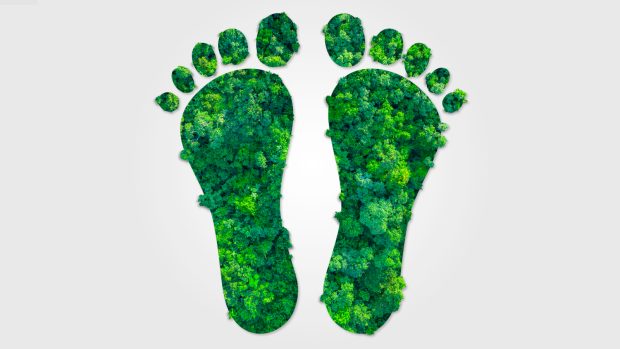4 Easy Ways To Shrink Your Carbon Footprint
Your carbon footprint is a measurement of how much you contribute to the presence of greenhouse gases in the atmosphere at a given time period. The lower it is for each individual, the less of an impact that they will have on the growing concern about global warming.
As the human population grows every year, we do more and more damage to the environment. The best way to counteract this is by ensuring that we can each live more sustainably.


If you’re looking to live more sustainably in the modern world, we have some tips for you:
1. Using Reusable Food Storage Methods
Taking the time to clean and reuse your food storage materials will reduce the waste that you create. It is common to use disposable plastic zipper bags to store uneaten food or when traveling with snacks and food items. Using these bags can be pretty handy, but they end up contaminating the soil, the water, and the food.
Why not use some great alternatives that you can reuse instead? These include:
- Beeswax Food Wraps
- Tupperware
- Reusable Zipper Bags for Food
- Reusable Water Bottles for Liquids
- Mason Jars
2. Turn to Washcloths Instead of Paper Towels
Washcloths are small towels that can serve many uses! These can be an excellent replacement for paper towels when you are cleaning up spills.
These handy little towels can also serve other uses as well, from removing makeup to even replacing your shower loofah.
The best part about these washcloths is the easy cleanup. Once you have used one, just toss it into the machine when you clean your laundry, and it will be clean and ready for subsequent use, whatever that may be!
3. Reusing Cold Water From the Tap
We’ve all been there – when you want a warm shower, and you are willing to stand and wait for the water to warm up to the right temperature. It makes a shower much more enjoyable. But you can make this habit helpful for the Earth too!
All you have to do is put a bucket under that tap while you wait for it to be at the right temperature.
Then you can use that cold “unwanted” water for your houseplants, your garden, pet water, or car wash. You might even throw it into a water pitcher with a filter built-in and drink it.
Reusing potable water is becoming more common and will help reduce the amount of water waste and water waste consumption that you might not ordinarily think about.
4. Turning Off Your AC When You Leave the House
Turning off your air conditioning system when you’re not home will help save you electricity and money too! By conserving energy, you will also help preserve natural resources.
Lowering your energy use also helps to reduce your own carbon dioxide emissions and reduce your impact on global warming via greenhouse gases. Making these small changes in your daily life will help the environment and also your budget too.
Final Thoughts
Reducing your carbon footprint is as easy as using beeswax food wraps instead of plastic zipper bags or clicking off your air conditioning unit on your way out the door.
Reusable products may be slightly more expensive, but the investment is a one-time fee, and once you adjust to using them, you won’t have to worry about purchasing them again.
All in all, it’s not so hard to make little changes throughout the day to reduce the energy waste, water waste, and solid waste that each of us contributes to the environment.